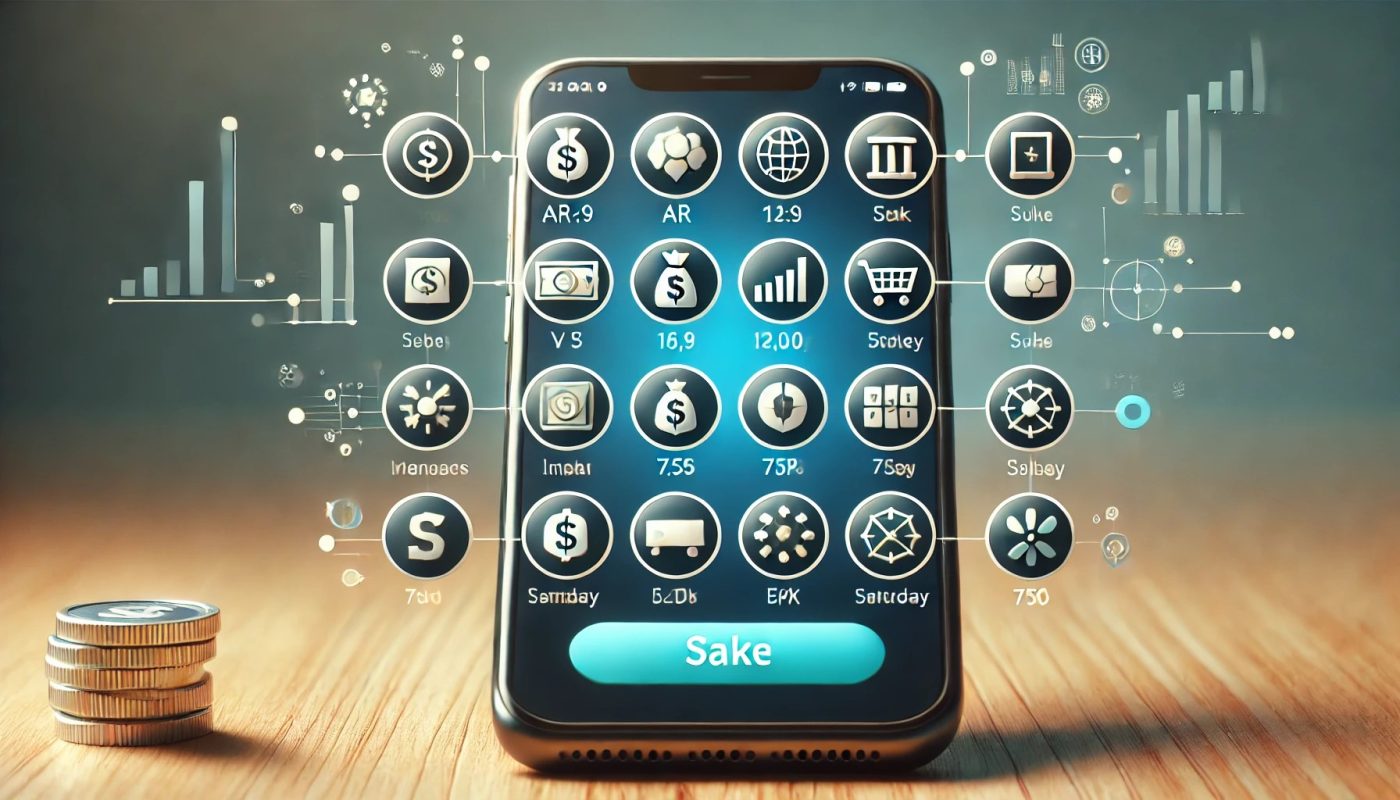Financial applications, or “apps” as they are more commonly called, have emerged as a vital tool for handling our everyday financial duties in a time of digital innovation. These apps are useful for many things, such managing assets, budgeting personal funds, and streamlining bank transactions. Understanding these applications is becoming increasingly important for everyone as the world moves toward mobile-first technology, from young individuals managing their first paychecks to seasoned investors wanting to optimize their portfolios.
Understanding Financial Apps
What is a Financial App?
A financial app is a software program designed to manage, augment, or assist with personal or business financial tasks. These applications can be accessed via smartphones, tablets, or web browsers, offering users a convenient and swift way to oversee their financial activities.
Basic Functions
Financial apps typically allow users to perform a range of activities, which include:
- Checking account balances: Users can view their current and savings account balances in real-time.
- Making payments and transfers: Apps facilitate seamless transfer of funds between accounts or to other people.
- Investment tracking: For those involved in the stock market or other forms of investment, many apps provide a way to track and manage portfolios.
Types of Financial Apps
Financial technology has evolved to cater to a wide range of needs. Here are some of the main types of financial apps:
Banking Apps
Most major banks offer their own apps that allow customers to perform basic banking tasks like transferring money, paying bills, and depositing checks using their mobile device’s camera. For instance, apps like those from HSBC or Barclays provide a secure and user-friendly platform for day-to-day banking.
Budgeting Apps
These apps help users manage their personal finances by tracking their income and spending. Apps like Mint or YNAB (You Need a Budget) sync with user bank accounts to provide real-time insights into spending habits, helping users to stick to their budgets and save money.
Investment Apps
Investment apps cater to users looking to manage their investments or trade stocks. Apps such as Robinhood or E*TRADE offer tools for buying and selling stocks, bonds, and other securities, often with reduced or no fees, which appeals particularly to new and younger investors.
Tax and Accounting Apps
For businesses and individuals alike, tax and accounting apps simplify the management of financial records and tax filing. TurboTax and QuickBooks are examples of apps that automate much of the processes required for tax preparation and business accounting, ensuring compliance and accuracy.
Benefits of Financial Apps
The surge in popularity of financial apps is largely due to the myriad benefits they offer. Here are some of the key advantages:
- Accessibility: Financial apps provide the convenience of managing finances anywhere and anytime, even when on the move.
- Efficiency: With features like automated bill payments and direct deposit functionality, these apps save time and reduce the need for manual financial management.
- Security: Enhanced security features, such as biometric logins (fingerprint and facial recognition) and end-to-end encryption, ensure that user data and financial transactions are protected.
A standout example is the use of apps for contactless payments, particularly highlighted during the COVID-19 pandemic, which not only reduced the need for physical interactions but also expedited the payment process at checkout points.
Real-world Examples
The landscape of financial apps is diverse, with each app designed to address specific financial needs. Here are a few examples of widely used financial apps that have transformed how individuals and businesses manage their money:
- Mint: This app provides a comprehensive overview of personal finances by aggregating all user accounts in one place. It offers tools for budgeting, tracking expenses, and monitoring investments, making it easier for users to achieve their financial goals.
- Robinhood: Known for its user-friendly interface, Robinhood has popularised investment among millennials. It allows users to trade stocks, ETFs, and cryptocurrencies without paying commissions, democratizing access to the stock market.
- Fidelity Retirement Score: Aimed at future planning, this app helps users understand their retirement savings status by answering a few simple questions. It’s an invaluable tool for those planning their financial future.
These applications highlight the practical benefits of financial apps, providing solutions that help users manage different aspects of their finances efficiently and effectively.
Development Challenges
Despite their advantages, developing financial apps comes with its own set of challenges. Here are some of the most prevalent:
Security Concerns
The primary concern in financial app development is security. Protecting user data and transactions is paramount, as these apps often handle sensitive financial information. Developers must implement robust security measures, such as encryption and multi-factor authentication, to prevent data breaches and fraud.
Regulatory Compliance
Financial apps must comply with various regulatory standards, which can vary significantly from one country to another. Navigating these legal requirements is essential for apps to operate within the law and maintain user trust.
Technological Challenges
Integrating advanced technologies like artificial intelligence (AI) and blockchain can significantly enhance app functionalities but also complicates the development process. These technologies require significant investment and expertise, which can be a barrier for startups and smaller companies.
Future of Financial Apps
Looking ahead, the evolution of financial apps is likely to be shaped by emerging technologies and changing user expectations. Here are some trends that are set to define the future of this space:
- Artificial Intelligence and Machine Learning: These technologies will increasingly be used to offer personalized financial advice and enhance decision-making processes.
- Blockchain: More financial apps will adopt blockchain technology for its benefits in security and transparency.
- Virtual and Augmented Reality: These technologies could transform the customer experience, for example, by simulating in-branch banking experiences in a virtual environment.
Financial apps are not just changing; they are revolutionizing the way we interact with our money. As these technologies advance, they will create more intuitive, secure, and user-focused experiences, potentially making financial apps even more integral to our daily lives.
By providing a clear, concise, and engaging explanation of the current landscape, challenges, and future possibilities in financial app development, this article aims to keep readers informed and prepared for the ongoing digital transformation in the financial sector.
Conclusion
The advent of financial apps has significantly transformed the landscape of personal and business finance management. With their ability to provide real-time financial data, simplify complex transactions, and enhance user engagement through intuitive interfaces, these apps are not just tools but essential companions in our everyday financial dealings. As technology continues to evolve, so too will the capabilities of these apps, bringing more sophisticated, secure, and user-friendly features that promise to further revolutionize our approach to managing money.
From banking to budgeting, and from investments to tax planning, financial apps have democratized access to financial services, making them accessible to a broader audience than ever before. Whether you’re a seasoned investor or someone just starting to navigate the complexities of personal finance, these apps offer tailored solutions that can help streamline processes and make financial management less daunting.
As we look to the future, the integration of cutting-edge technologies like AI, blockchain, and virtual reality into financial apps holds the potential to enhance the personalization and security of financial services even further, promising a new era of financial empowerment and accessibility. This evolution will likely not only meet but exceed the expectations of tech-savvy consumers, paving the way for a fully digital financial world.
FAQs
A financial app is a software tool that helps users manage their money directly from their mobile devices or computers. These apps can perform various financial tasks, such as banking, budgeting, investing, and monitoring spending.
Financial apps allow users to access their financial data from anywhere at any time, making it easier to perform tasks like checking balances, making payments, or trading stocks outside of traditional banking hours or from remote locations.
Most financial apps employ advanced security measures such as encryption, multi-factor authentication, and continuous fraud monitoring to protect users’ data and prevent unauthorized access.
Yes, many financial apps provide tools for tracking investments and markets, and some offer personalised advice based on artificial intelligence technologies. Apps like Robinhood and Acorns also simplify the investment process for novice investors.
The future of financial apps will likely see greater integration of AI and machine learning for customized financial guidance, increased use of blockchain for security, and the potential application of VR/AR technologies for enhancing the user experience.




